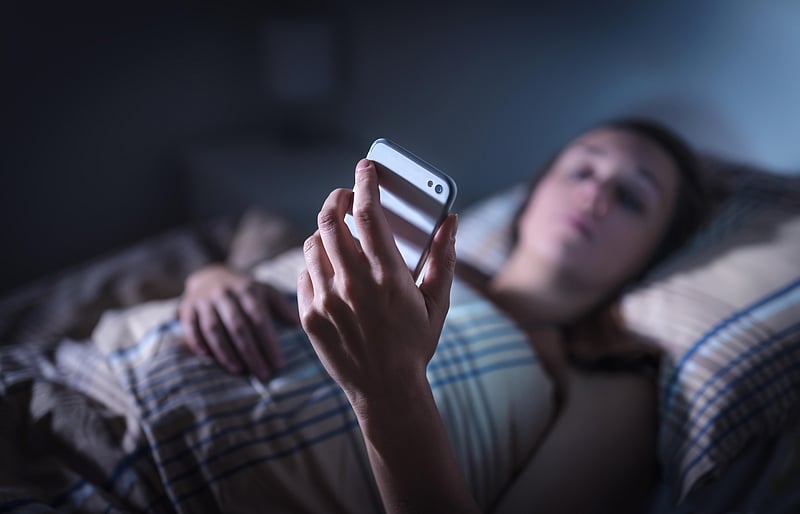Manténgase sano!

- Cara Murez
- Posted October 26, 2022
New TikTok Trend of Mouth Taping During Sleep Carries Dangers
A new trend promoted on the social media platform TikTok has people taping their lips shut at bedtime -- a practice that could be dangerous, an expert warns.
The purpose of mouth taping is to keep from breathing through your mouth at night.
"If you have obstructive sleep apnea, yes, this can be very dangerous," sleep specialist Dr. Raj Dasgupta told CNN.
"There is limited evidence on the benefits of mouth taping and I would be very careful -- and even talk to your health care provider before attempting it," added Dasgupta, an associate professor of clinical medicine at the University of Southern California Keck School of Medicine.
Not everyone who has obstructive sleep apnea knows it. People with the sleep disorder stop breathing repeatedly during the night. More than 1 billion adults worldwide between the ages of 30 and 69 alone likely have the condition, according to a 2019 study. Millions are undiagnosed.
The reasons given for the mouth taping trend include trying to achieve beauty sleep.
"I tape my mouth shut every single day," one woman said on TikTok. "Sleeping properly is really important to anti-aging and looking and feeling your best."
One woman said she doesn't remember why she started taping her mouth shut at night.
"Truth be told, I don't know. I saw on TikTok and I can't remember what the benefits were. But it helps me stay asleep," she said, according to the CNN report Wednesday.
So what's wrong with mouth breathing? In general, it can lead to snoring, thirst, dry mouth and bad breath in the morning.
Lungs can be irritated by dry air breathed through the mouth, Dasgupta said, whereas with nose breathing the air is moisturized.
"Nasal breathing may lower blood pressure by increasing nitride oxide, a compound in your body that can be helpful for keeping your blood pressure under control," Dasgupta added.
But anyone interested in this trend should first be evaluated for obstructive sleep apnea, Dasgupta said.
"Once obstructive sleep apnea is ruled out completely, then we can call it snoring," he said. "Also, there are many other options to address snoring beside mouth taping, such as nasal strips, nasal dilators and mouth [and] throat and tongue exercises."
You can help prevent mouth breathing in a safer way by not sleeping on your back, he said.
Causes of mouth breathing include allergies, colds, a deviated septum in the nose and nasal polyps. In children, the cause may be enlarged adenoids or tonsils, according to the Mayo Clinic in Rochester, Minn.
An ear, nose and throat specialist or sleep specialist can help people work through solutions, CNN noted.
"These issues should be addressed and evaluated first before mouth taping. In my opinion taping your mouth shut is not likely to help you sleep better," Dasgupta said.
More information
The U.S. National Heart Lung and Blood Institute has more on sleep apnea.
SOURCE: CNN





